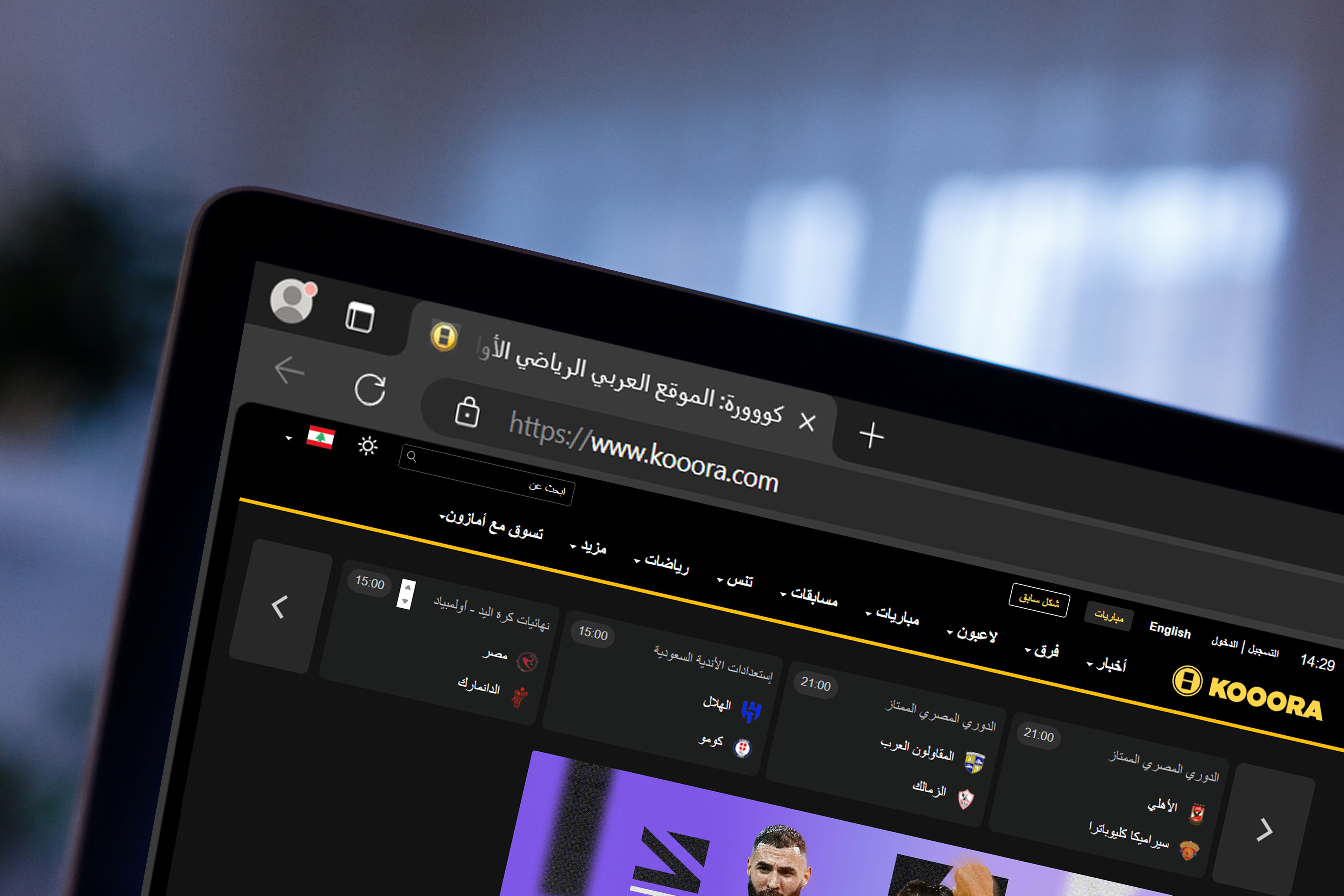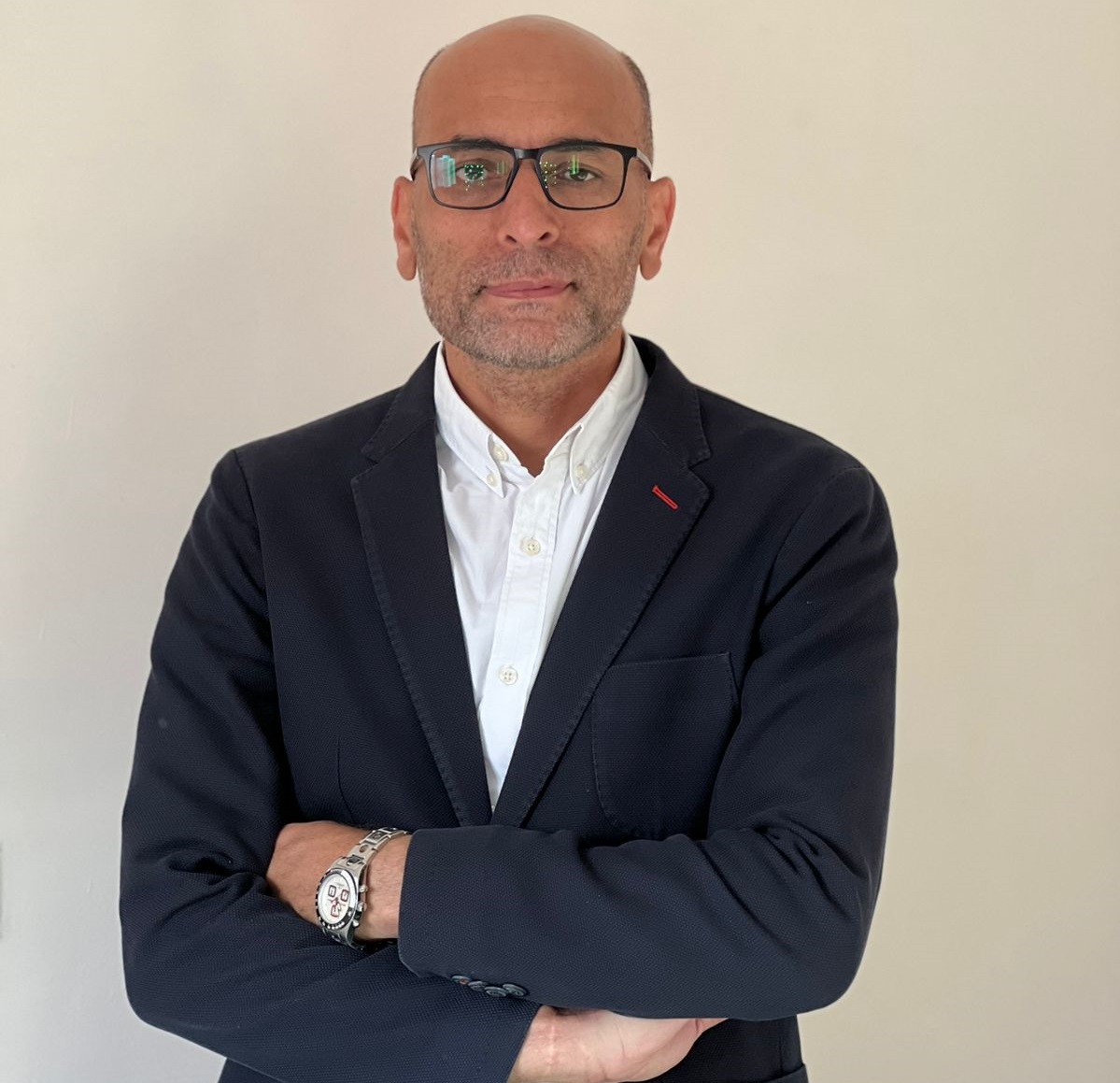في الأول من سبتمبر/أيلول عام 2002، كان العالم العربي على موعد مع ميلاد موقع كبير على شبكة الإنترنت. نجح منذ الخطوات الأولى في جذب عشاقه من جميع الأنحاء، في وقت كان فيه عالم الإنترنت حديثًا بعض الشيء على وطننا العربي. إنه موقع كووورة العربي الرائد في عالم المحتوى الرياضي، الذي نجح خلال مسيرته الممتدة طوال 20 عامًا في أن يكون رقمًا صعبًا، على مدار جميع مراحل تطوره.
التأسيس جاء بمملكة البحرين على يد خالد الدوسري، الذي حلم بهذه الفكرة وسعى وراء تنفيذها بكل جهد حتى رأت النور، وأضحت علامة بارزة في عالم الرياضة، تتبوأ الصدارة في مجال تقديم المحتوى الرياضي المتميز ليصبح الموقع العربي الرياضي الأول.
المنتديات ودورها الرائد
البداية كانت من خلال المنتديات الرياضية المختلفة، التي نجحت في مهمتها وحققت هدفها الأول بتوفير قاعدة شعبية واسعة للجماهير الرياضية، لتبادل الآراء والنقاش حول نتائج الفرق، والمسابقات العالمية والمحلية في العديد من الرياضات.
وكانت المنتديات بمثابة وسيلة اجتماعية تعرف عليها شباب الوطن العربي، وتعارفوا من خلالها على بعضهم، لتنجح في أن تصبح ملتقى للشباب المهتم بعالم الرياضة، الذين بات أغلبهم فيما بعد من رواد العمل الرياضي بالوطن العربي.
وأشرف عشرات من المتطوعين على المنتديات، وساهموا في نجاح المهمة من خلال مهام الإشراف والرقابة، التي اعتمدت على الحوار الهادف البعيد عن التعصب والخروج عن النص. وفتح كووورة الباب أمام جميع الرياضات ليكون لها نصيب من التحاور والتباحث ونقل الأخبار من خلال هذه المنتديات، حيث لم يكن الأمر مقتصرًا على كرة القدم فقط.
البداية كانت من خلال المنتديات الرياضية المختلفة، التي نجحت في مهمتها وحققت هدفها الأول بتوفير قاعدة شعبية واسعة للجماهير الرياضية.
واعتمد الموقع في بداياته على مساهمات المتطوعين من خلال نشر الأخبار، التي يحصلون عليها من كافة المصادر في الوطن العربي، وبعدها بفترة أضيف لها أخبار من وكالات الأنباء مثل رويترز والوكالة الألمانية، في محاولة أولى لتقديم محتوى ذي طابع احترافي يحظى بمصداقية كبيرة.
وفي نفس الوقت، كان كووورة رائدا في النقل المباشر لنتائج المباريات من كافة أنحاء العالم، ليس لكرة القدم فقط بل للعديد من الألعاب الرياضية، وتحديدا الألعاب الجماعية والتنس، ومن بطولات كان من الصعب أن تجد نتائجها إلا في كووورة، ليكون التساؤل الأكثر تداولًا بين الجميع: كيف تستطيعون تقديم كل ذلك؟
التحول الاحترافي
مع تسارع نجاح كووورة وجماهيريته وارتباط الجماهير به من المحيط للخليج، انتقل الموقع إلى عصر الاحتراف في الصحافة الإلكترونية، وذلك مع نهاية عام 2010، حيث بدأ تشكيل فريق تحرير كبير، مكون من شبكة من المراسلين حول العالم، إذ تواجد فريق من المراسلين في جميع الدول العربية، بالإضافة إلى محررين في بعض العواصم العالمية. وفي عام 2012 انتقل الموقع إلى دبي في إطار خطة توسع، تهدف إلى زيادة طاقم التحرير بنسبة 100%، ليصل العدد إلى حوالي 80 شخصًا بحلول عام 2015.
اعتمد الموقع في بداياته على مساهمات المتطوعين من خلال نشر الأخبار، التي يحصلون عليها من كافة المصادر في الوطن العربي.
وإلى جانب المراسلين، يمتلك الموقع أقوى فريق ترجمة وتحليل مختص بالبطولات العالمية والدوريات الأوروبية المختلفة، حيث نجح في إجراء حوارات مختلفة في إسبانيا وإنجلترا، نشرتها عن كووورة الصحف والمواقع العالمية، مثل ماركا الإسبانية، وذا صن الإنجليزية، وأيضا وكالات الأنباء على غرار رويترز. واعتمد الموقع على تغطية البطولات العالمية من قلب الحدث، مثل مونديالي 2014 و2018، ودوري أبطال أوروبا، وكذلك البطولات العالمية والقارية، والأحداث المختلفة حول العالم.
ولم ينفصل الموقع مطلقًا عن التطورات السريعة للصحافة الرياضية الرقمية، حيث اقتحم عالم إنتاج الفيديوهات المتنوعة، سواء السريعة التي لا تستغرق أكثر من 3 دقائق، أو الحلقات الحوارية المختلفة، وأيضا البرامج التحليلية التي استضافت العديد من نجوم التحليل في الوطن العربي.
ومع التطور المذهل لوسائل التواصل الاجتماعي، دخل كووورة المنافسة بقوة على منصات التواصل الاجتماعي، وواكب هذا التطور التكنولوجي، حيث يتابعه أكثر من 2.4 مليون شخص على تويتر، و5.6 مليون على فيسبوك، و2.2 مليون على إنستغرام، ومليونا شخص على سناب شات، و300 ألف متابع على يوتيوب.
أرقام لها معنى
ويغطي كووورة نحو 40 رياضة مختلفة، وتمثل كرة القدم حوالي 85% من نشاطه، والتنس 10%، وتشمل النسبة المتبقية الألعاب الرياضية الأخرى، ويمكن القول إن كووورة ليس مجرد موقع واحد، بل هو مجموعة كبيرة من المواقع لدول وألعاب وبطولات مختلفة، ويزور الموقع الرياضي العربي الأول حوالي 25 مليون زائر شهريًا من جميع دول العالم.
وينتج فريق التحرير حوالي 300 خبر يومي، ويتنوع هذا المحتوى الضخم ما بين الأخبار المستقاة من المصادر العالمية المختلفة، والموضوعات التحليلية والتقارير التي تفجر وتناقش العديد من القضايا، سواء العربية أو العالمية. وتعتمد سياسة تحرير الموقع على الاحترافية في العمل، من خلال الحياد التام، واستقاء المعلومة وتحريرها من قبل فريق تحرير رياضي محترف، مع المراجعة الدقيقة لكل معلومة، لتصل للزوار سليمة وصحيحة تمامًا، إلى جانب التركيز على السرعة في نقل الخبر وبمصداقية كبيرة، وهو ما يمثل التحدي الأكبر بالنسبة لهيئة تحرير الموقع.
ويمتلك كووورة أرشيفًا ضخمًا، حيث إن لديه أكثر من مليوني مباراة تاريخية، وينضم إلى مكتبة الأرشيف حوالي 10 آلاف مباراة شهريًا، إضافة إلى قاعدة بيانات كبيرة عن اللاعبين والأندية والبطولات.
إلى جانب المراسلين، يمتلك الموقع أقوى فريق ترجمة وتحليل مختص بالبطولات العالمية والدوريات الأوروبية المختلفة
شراكات مثمرة
ومع النجاح المتتالي لموقع كووورة، وشعبيته الكبيرة في الوطن العربي، أصبح شريكًا استراتيجيًا للعديد من المؤسسات العالمية، أبرزها حفل توزيع جوائز جلوب سوكر العالمية، بالتعاون مع مؤتمر دبي الرياضي الدولي، الذي ينظمه مجلس دبي الرياضي، والذي يحضره نجوم كرة القدم والمدربين ورؤساء الأندية على مستوى العالم. كما قطع موقع كووورة خطوة كبيرة، بالدخول في شراكة حصرية عام 2015 مع شركة بيندوني للاستشارات، التي تتولى تنفيذ حفل جلوب سوكر العالمي، ليصبح شريكًا استراتيجيًا وناقلًا رقميًا لأحداث وفعاليات الحفل.
ومباشرةً، بدأ موقع كووورة في ترك بصمته، من خلال إطلاق عدة جوائز خلال النسخ المختلفة لهذا الحدث، وتوج بهذه الجوائز أسماء كبيرة، أمثال السعودي ياسر الشهراني والإماراتي عموري والمغربي عبد الرزاق حمد الله، والنجم المصري محمد صلاح، إضافة إلى الأسطورة البرتغالي كريستيانو رونالدو، كما فاز بالجائزة الهلال السعودي على مستوى الأندية، والمنتخب السعودي على صعيد المنتخبات.
كما دخل كووورة في العديد من الشراكات الأخرى، خصوصًا مع مجلس دبي الرياضي، ونادي أتلتيكو مينيرو البرازيلي، ورابطة التنس للمحترفين ATP.
جوائز كووورة وقصة الموقع العربي الأول
ونظرًا لأن كووورة بدأ قويًا، واستمر في مواكبة التطور طبقًا لأحدث وسائل الإعلام الرقمي العالمي، فقد نال العديد من الجوائز العالمية والعربية خلال مشواره، منها على سبيل المثال لا الحصر جائزة أفضل موقع عربي رياضي، وفقًا لقائمة الطبعة العربية لمجلة فوربس الأمريكية "فوربس الشرق الأوسط" عام 2012. وفي عام 2014، حصد "كووورة" الجائزة الأولى كأفضل موقع رياضي عربي، متفوقًا على جميع المواقع الرياضية من المحيط إلى الخليج، في المنتدى الرابع للصحافة الإلكترونية الذي أقيم في مصر.
تعتمد سياسة تحرير الموقع على الاحترافية في العمل، من خلال الحياد التام، واستقاء المعلومة وتحريرها من قبل فريق تحرير رياضي محترف، مع المراجعة الدقيقة لكل معلومة.
ولم تتوقف نجاحات كووورة، ففي عام 2021 حصل على جائزة أفضل موقع رياضي في الشرق الأوسط، خلال حفل توزيع جوائز مهرجان الإسكندرية للإبداع الرياضي "الموسم الرابع". وفي وقت سابق من الشهر الجاري (أكتوبر/تشرين الأول 2022)، حصل موقع كووورة على جائزة الإعلام الرقمي كأفضل منصة رياضية عربية، خلال منتدى الإعلام العربي بدبي. وتأتي الجائزة تأكيدًا على تميز كووورة، الموقع الرياضي الأول بالشرق الأوسط، الذي يهتم بجودة وشمولية المعلومة، وسرعة نشر الأخبار الرياضية وإيصالها للقارئ بأدق التفاصيل.
استعدادات مختلفة للمونديال
وتميز كووورة على مدار 12 عامًا في تغطية المونديال من قلب الحدث، حيث اهتم دائمًا بالبحث فيما وراء الخبر، والانفراد بلقطات لم يرصدها سوى كووورة لزواره، سواء نصية أو مصورة، على الموقع الرسمي وجميع منصات التواصل الاجتماعي.
ويعتبر مونديال قطر الحدث الأهم بالنسبة لكووورة، حيث تقام بطولة كأس العالم في دولة عربية للمرة الأولى، لذا بدأ الموقع في تغطية المونديال منذ صيف 2021.
وتم اعتماد رقم "22" في التغطية لعدة أسباب، أهمها أن البطولة عام 2022، وعدد دول الوطن العربي 22، كما أن مونديال قطر هو النسخة رقم 22 في تاريخ كأس العالم، بالإضافة إلى أن عدد المصوتين لقطر من أجل تنظيم المونديال كانوا 22 أيضًا. بدأت التغطية المكثفة على الموقع بشكل مبكر جدًا، وتحديدًا يوم 22-2-2022، وتم الانتهاء من مرحلتين، بينما تستمر المرحلة الثالثة حاليًا قبل انطلاق المونديال، فيما تأتي التغطية من كل أنحاء الوطن العربي، وتحديدًا من الدول التي تأهلت لكأس العالم، مع الاهتمام أيضًا بالموضوعات التاريخية والأرشيفية.
ويستعد فريق كبير من محرري ومصوري كووورة، المعتمدين لدى الفيفا، للذهاب إلى قطر قبل انطلاق البطولة مباشرةً، من أجل نقل كل كبيرة وصغيرة لزوار الموقع، الذين اعتادوا على تغطية مختلفة في كل مونديال.








































